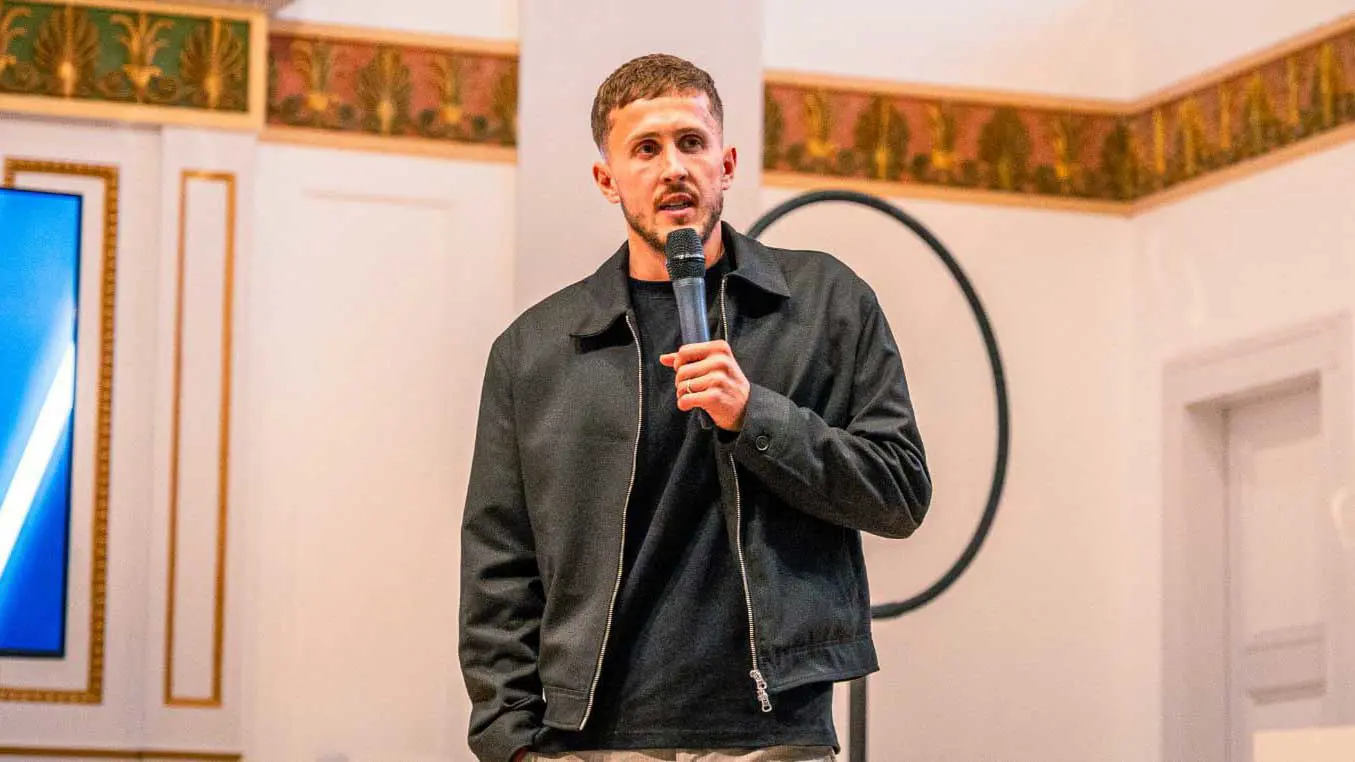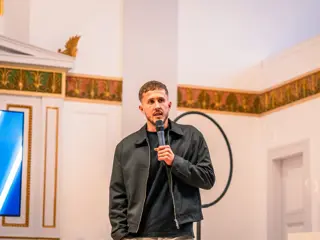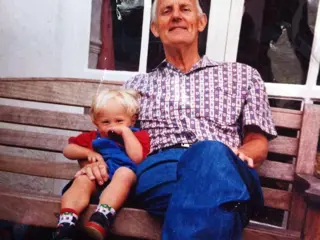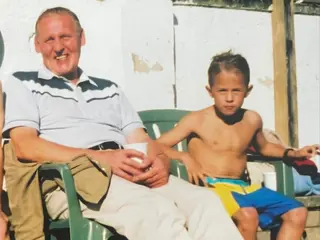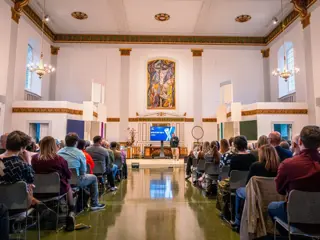Player Op-Ed
Will Vaulks: "My grieving process has driven me to raise awareness of suicide prevention"
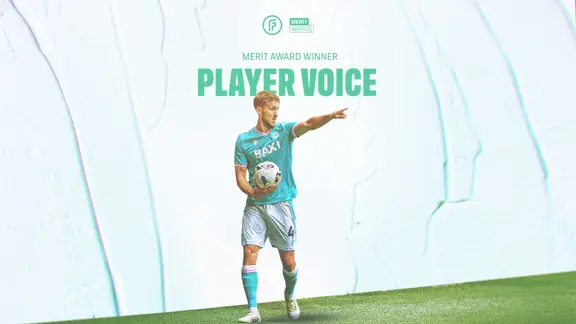
About the author
Oxford United and Wales midfielder Will Vaulks has been recognised with the Player Voice Award in the 2025 FIFPRO Merit Awards. Will lost both of his grandfathers to suicide, just a year apart from each other. In 2022 he became an ambassador for Baton of Hope, using his own experiences to encourage meaningful discourse around both mental health and bereavement.
By Will Vaulks
My grandfathers were Tom Vaulks and Hywel Edwards. Both played a huge part in my life.
Tom was always the life and soul; he worked in the mines, he drove a motorbike, and he injected so much fun into my childhood with lots of broken rules and late nights. He died by suicide in May 2007 when he was 67 years old.
Hywel was a gentle and loving family figure, a proud Welshman and the reason I play for Wales. He lived close by when we were growing up and was a constant presence in our lives. One October Sunday morning, in 2008, he came to watch me play for Tranmere Rovers. The next day he took his own life at 78 years old.
I got involved with Baton of Hope after meeting one of the co-founders, Mike McCarthy, when I was playing for Sheffield Wednesday. Mike had lost his son, Ross, just two years prior, and we ended up sharing our experiences and connecting over a desire to use them to help others.
The charity aims to educate communities on mental health awareness, connect those who have been affected by suicide and ultimately do whatever they can to create a culture that prevents people from reaching such a point of desperation.
One of their initiatives is The Workplace Pledge that I personally think all companies should sign. It marks a commitment to prioritise mental health within the workplace, removing the stigma that still surrounds it, and supporting those who are affected. Through my role as ambassador with Baton of Hope, I brought the concept to Oxford United and they became the first football club in the country to sign the pledge.
Members of the Baton of Hope presented to the players and just opened the conversation of mental health within the team – it was an inspiring experience. Since then, team-mates have begun to reach out to each other and share about their lives and struggles.
It’s made our workplace so much more empathetic. It means everything to me when a team-mate confides in me about their feelings, knowing that we’ve created an atmosphere that gives them the courage to be vulnerable enough to ask for help.
It's something both my grandfathers didn’t have, and without it they reached a point of desperation they couldn’t recover from. My family and I will always wish that they had reached out to us, so that we could have helped them through whatever pain they were dealing with alone.
I want to encourage as many people in the world to share those thoughts and ask others to do the same, so that no one has to experience the agony of wondering. Suicide awareness encourages us not only to reach out, but how to help when someone does, and knowing when to signpost them to professional support.
The experience acted as a springboard for my own activism. I got in touch with my player union, the PFA, and the English Football League, who helped me start spreading the message and encouraging other clubs to take the same steps. It’s an invaluable structure for any institution, but I’ve seen with my own eyes the toll that football can take on a person’s mental health.
It breaks my heart to see young players looking at all the hurtful things said about them on social media, knowing how toxic it is for them to consume it. Then at the other side you see the older players who leave the game and find themselves struggling with finances, relationships, and identity. All the stress and negativity can create a fertile ground for depression – and unfortunately all too often that reaches the crisis point of suicidal thoughts.
Oxford United have really embraced the opportunity to address mental health within the club which led to the Can We Talk? campaign. Our Head of PR, Ryan, came up with the idea following two of the club’s personal losses: club legend Joey Beauchamp, and a 24-year-old fan named Jack Badger.
We created a video with Joey’s brother, Jack’s mum and myself for World Mental Health Day in 2024 to launch the campaign, and share the pain that each of us have felt from losing loved ones to suicide. All of us will forever wish that these people in our lives had simply asked “Can We Talk?” – and we don’t want anyone else to live with that regret. It was an emotional experience for us, and it hit home for a lot of people, but it was always just the starting point. It’s not something to be walked away from once it’s over – it was always a way to open the conversation and build towards a better future.
That’s why being recognised with the FIFPRO Player Voice Award means so much to me. My family and I feel so proud to have our work recognised by such a global organisation because it shows just how far our voice has travelled. It gives us a speakerphone to be heard even louder, and it motivates me to keep fighting for change.
Prince William endorsed the Baton of Hope recently which was another incredible boost for the charity and a proud achievement for an initiative that has only been established for three years. Every public show of support could be the platform needed to reach another person in need, and if that helps bring just one person back from the brink of suicide, then we helped not just them, but everyone that would miss them if they were gone.
As a footballer in the public eye, I feel both the responsibility and the opportunity to reach as many people as possible. I don't want families to go through what my family had been through, and that grieving process has been what drives my passion to raise the awareness needed to bring suicide numbers down.
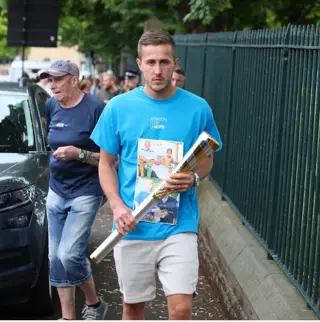
The physical Baton of Hope is heavy. You can’t pretend it’s not there. In the 100 yards that I carried it more emotion came out of me than in the 14 years that had led me to that point. I think it was a long time before I realised how much my grandfathers’ suicides had affected me, and now that I have acknowledged the pain, I see it as my mission to stop anyone else from experiencing it.
My grandfathers were Tom Vaulks and Hywel Edwards. Both of them still play a huge part in my life and I will always try to honour their memories.
